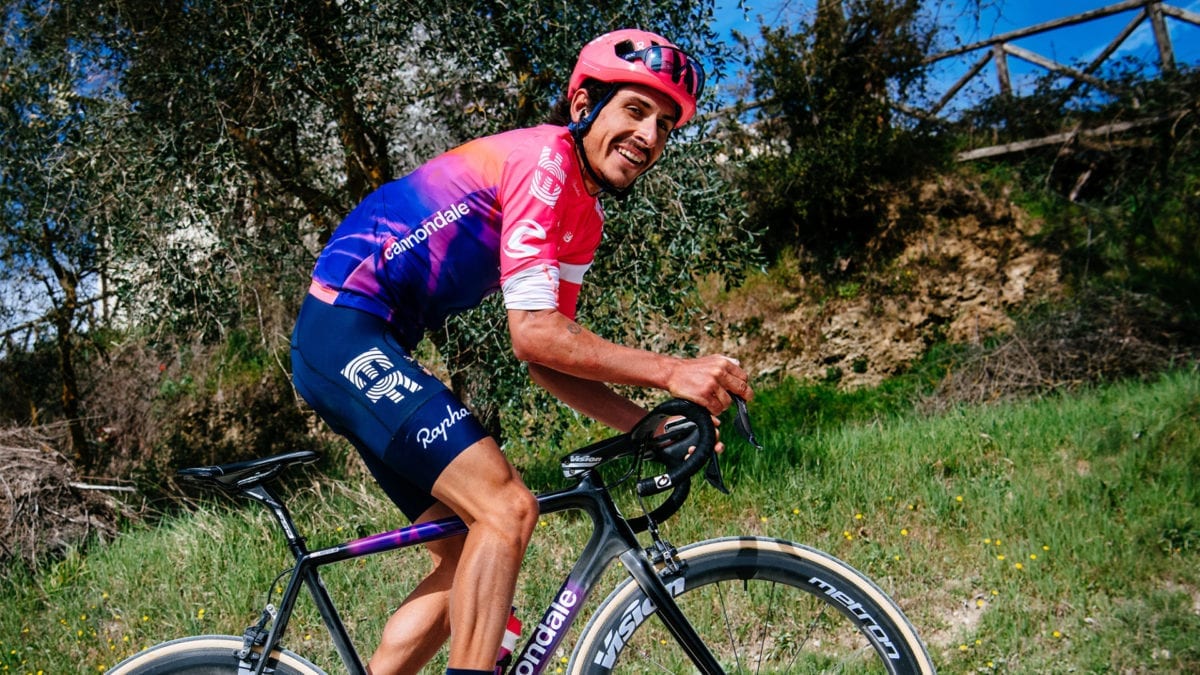Lachlan Morton reclaims his Everesting world record one week after his disqualified attempt
The EF Education First rider is back at the top of the mountain
 Photo by:
EF Education First
Photo by:
EF Education First
On June 14, Lachlan Morton broke the Everesting world record. His time, seven hours, 32 minutes and 54 seconds, was faster than previous record holder U.S. national mountain bike champion Keegan Swenson’s time by just over seven minutes. Although Morton’s Strava data said his elevation for the Everesting attempt was only 8,509m, the record was still approved by Hells 500, the keepers of the Everesting data.
Unfortunately, as we revealed, the segment Morton used for his attempt fell into a very specific loophole that bypassed the rigours testing Hells 500 uses to validate all Everesting attempts.
RELATED: Why Lachlan Morton’s Everesting world record might not be legitimate
Following the publication of that article, Hells 500 made an announcement officially retracting Morton’s world record. “One thing we never anticipated when creating this challenge for our crew was that it would one day be raced by riders at the top level of the sport,” said the group in a Facebook post. “In fact, ironically, this challenge was set up as the antithesis of racing! That said, we appreciate and respect that whilst completion is the driving factor for the vast majority of participants, the appeal of setting new records for Everesting has clearly taken hold – and so we’ll need to adapt to that.”
“As painful as it is, we stand by our community’s decision to recategorise this as a (very large) Everesting Basecamp listing, which means Keegan Swenson is restored at the top of the Everesting leaderboard.”
New rules
In order to avoid and confusion in the future, Hells 500 will now pre-approve segments for world record attempts and agree on a set elevation gain prior to an attempt. “We believe the new measures we have put in place to pre-qualify segments using independent data will prevent this from happening again,” says Hells 500. “Unfortunately we will never know how the situation may have differed if Lachlan had the independent segment analysis to hand pre-attempt.”
Yesterday Morton proved to everyone that they could, in fact, know how the situation would unfold if he had the segment analysis available beforehand—as he reclaimed his Everesting throne on the same segment on week later.
Attempt number two
The cyclist returned to Rist Canyon on June 21, and spent the bulk of the day riding the 1.6km Rist Canyon climb (which averages 11 per cent) 48 times (6 climbs more than his first attempt). Morton used a slightly shorter segment of the Rist Canyon climb this time so his distance was 159km compared to the first ride of 169km. He added one extra lap for good measure at the end (he had reached 8,848m of elevation just under the 47th climb) and finished the ride at 9,113m of climbing.
Just spoke with the legend. Said he did an extra lap. “Just to make sure”…..?♂️
— Jonathan Vaughters (@Vaughters) June 20, 2020
Morton produced a new benchmark Everesting world record of seven hours, 29 minutes, 57 seconds, about three minutes faster than his first attempt but with ~340 m more elevation.
“Lachlan Morton’s time of 07:29:57 is incredible,” says Hells 500, “however the thing that will always remain – irrespective of what happens to this particular record – is that when faced with a result that didn’t sit right, he just got back out on the bike and did it again.”
